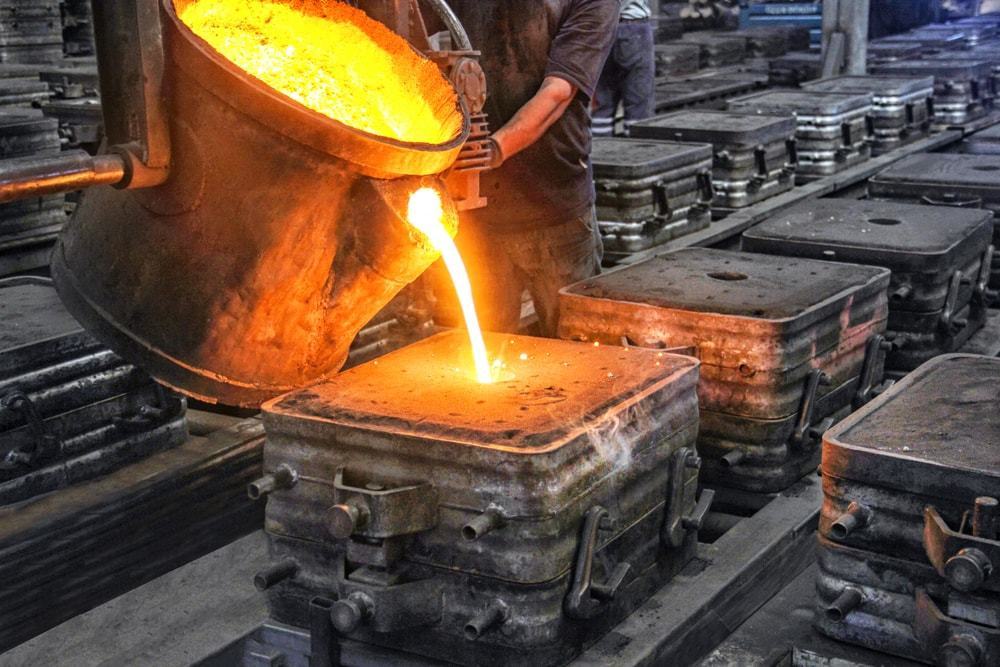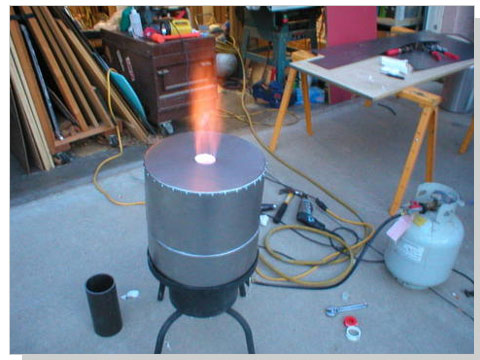Why an Aluminum Foundry produces high-grade finished components
Discovering the Role of a Metal Foundry in Modern Production Processes
Metal foundries are essential in the landscape of modern manufacturing. They provide important components across numerous sectors, adjusting to the demands of markets such as automotive and aerospace. Advanced methods such as 3D printing and automated casting have changed their procedures. Furthermore, sustainability has actually ended up being a top priority, affecting their methods. As these foundries evolve, the effects for making performance and development are substantial, elevating questions about their future trajectory in an ever-changing economic climate.
The Development of Metal Casting Methods

With the increase of automation, foundries took on techniques like die casting and shed foam casting, simplifying the manufacturing procedure and minimizing waste. Each evolution in metal casting techniques has satisfied the requirements of different industries, from vehicle to aerospace. As metal casting continues to development, the interplay between method and innovation stays critical in conference modern manufacturing difficulties, making sure that foundries adapt and thrive in an ever-changing landscape.
Assimilation of Advanced Technologies in Foundries
Although typical metal casting methods have actually offered the sector well for centuries, the integration of advanced innovations in foundries is revolutionizing the production landscape. Automation and robotics enhance production procedures, improving effectiveness and minimizing the threat of human error. Technologies such as 3D printing enable for quick prototyping and the production of complex geometries that were once impossible with standard approaches. In addition, data analytics and the Net of Points (IoT) enable real-time tracking and predictive maintenance, ultimately causing decreased downtime and boosted productivity. These advancements also help with modification, enabling suppliers to react promptly to market needs. As sustainability becomes a top priority, the fostering of eco friendly modern technologies, such as electric melting furnaces and progressed sand improvement systems, better shows the industry's dedication to advancement. Jointly, these innovations not just enhance operational performance however also placement foundries at the forefront of modern production methods.
The Influence of Material Scientific Research on Foundry Operations
Material scientific research plays a pivotal duty in boosting factory procedures, influencing both the choice of products and the overall casting process. Advancements in product scientific research give a much deeper understanding of the residential or commercial properties of metals and alloys, allowing foundries to select the most ideal materials for details applications. This understanding enhances the performance and longevity of actors items, which is necessary for fulfilling sector standards.
Additionally, advancements in material formulations and ingredients add to enhanced casting methods, maximizing and reducing problems manufacturing effectiveness. The growth of advanced metal compounds and smart products enables foundries to create lighter, stronger components, which are progressively demanded in different markets such as auto and aerospace.
Additionally, material scientific research help in the recycling of metals, making processes extra effective and cost-effective. By leveraging the most recent findings in product scientific research, foundries can adapt to progressing market demands, guaranteeing their competition in a rapidly altering manufacturing landscape.
Sustainability Practices in Modern Metal Foundries
With the growing emphasis on environmental obligation, modern-day metal foundries are significantly executing sustainability practices to minimize their ecological footprint (Metal Casting). One key strategy includes the recycling of scrap metal, which not just minimizes waste but also preserves energy and raw products. Foundries are adopting innovative melting innovations that enhance energy effectiveness, as a result reducing greenhouse gas discharges. Additionally, using eco-friendly coatings and materials has gotten grip, further lowering harmful discharges throughout manufacturing
Water conservation methods, such as closed-loop cooling systems, are being carried out to lessen freshwater usage. Many foundries are likewise purchasing renewable resource sources, like solar and wind, to power their operations, consequently why not try these out decreasing reliance on fossil fuels. Staff training programs focused on sustainability practices promote a culture of environmental understanding within the labor force. These campaigns jointly contribute to an extra sustainable future for metal foundries while meeting the needs of eco-conscious consumers.
The Future of Foundries in a Changing Economic Landscape
As the worldwide economy develops, foundries encounter a myriad of obstacles and possibilities that will shape their future (Aluminum Casting). The enhancing demand for lightweight products and advanced alloys requires innovation in production strategies and technical combination. Automation and wise production methods are becoming vital for enhancing efficiency and decreasing functional prices. Additionally, the increase of sustainability worries urges foundries to take on greener procedures and recycling efforts, aligning with worldwide ecological goals
The economic landscape is additionally changing, with supply chain interruptions and rising and fall raw product costs presenting considerable difficulties. Foundries need to adjust by expanding their supply sources and spending in products science. Cooperation with industries such as sustainable power and electric vehicles can cultivate growth. Inevitably, the future of foundries will certainly rely on their capability to utilize technological advancements while continuing to be receptive to market characteristics and ecological imperatives, ensuring their relevance in modern manufacturing.
Regularly Asked Concerns
What Sorts of Metals Are Frequently Used in Foundries Today?
Generally made use of steels in foundries today include aluminum, iron, zinc, steel, and copper. These products are favored for their diverse residential properties, making it possible for a large array of applications in sectors such visit this site right here as automobile, aerospace, and building and construction.
How Does a Shop Ensure High Quality Control in Its Products?

What Precaution Are Carried Out in a Metal Foundry?
Metal foundries apply security navigate here procedures consisting of individual safety devices, ventilation systems to lower breathing of fumes, regular safety and security training for employees, emergency situation reaction procedures, and strenuous tools maintenance to decrease hazards and guarantee a safe workplace.
How Long Does the Metal Casting Refine Commonly Take?
The metal casting process commonly takes numerous hours to days, relying on elements such as the complexity of the mold, the sort of metal utilized, and cooling times. Each job's demands considerably influence the duration.
What Industries Primarily Rely on Metal Foundries for Production?
Automotive, aerospace, machinery, and building and construction sectors mainly rely upon metal foundries for manufacturing. These fields make use of cast metals for elements, ensuring longevity and efficiency important for their respective applications in manufacturing and setting up processes.
Metal foundries are crucial in the landscape of contemporary production. Metal Casting. Typical metal casting approaches have served the industry well for centuries, the combination of sophisticated modern technologies in foundries is changing the production landscape. Advances in product science give a deeper understanding of the residential or commercial properties of alloys and metals, enabling foundries to pick the most suitable products for specific applications. With the expanding focus on ecological duty, modern metal foundries are increasingly applying sustainability methods to decrease their environmental footprint. Automotive, machinery, aerospace, and building sectors mostly count on metal foundries for production